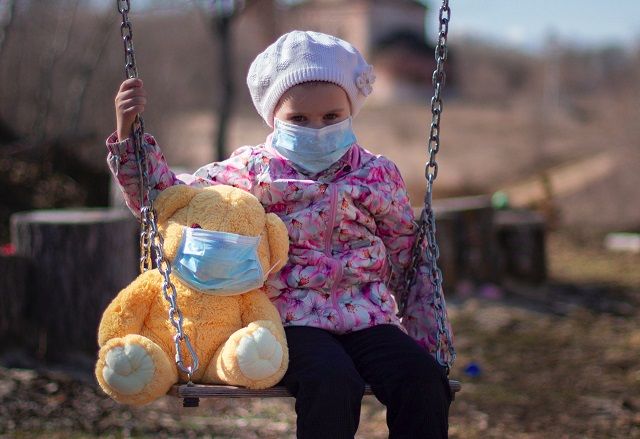Danish children and young people have had a relatively easy time coping with the coronavirus, and then recovering from it, according to a University of Southern Denmark study.
Academics thought the study necessary in light of scare stories from overseas but found little to be alarmed about.
The study compared the after-effects experienced by 74,611 Danish children and young people who tested positive for corona up until 1 October 2021, with 900,000 who did not.
Interesting findings
It made several interesting findings: firstly that PfizerBioNTech vaccine reduced the risk of testing positive for the Delta variant by 93 percent among 12 to 17-year-olds.
It deduced that 0.5 percent of all corona-stricken children needed to visit hospital with a month of infection, 0.01 percent were admitted to intensive care and 0.05 percent developed MIS-C.
Finally, it concluded that corona-infected children were just 8 percent more likely to visit their GP within six months of being infected.
Danes among research team who detect Big Bang era cosmic object
An international research team led by astrophysicists from the Niels Bohr Institute and DTU Space has identified a new type of cosmic object, which is believed to date back to the dawn of the Universe. A light-intensive quasar at the centre of a galaxy, it is a precursor to a super-heavy black hole born 750 million years after the Big Bang some 13.8 billion years ago. Computer simulations had suggested objects of this type could exist, but this is the first time that scientists have made an observation. They made the observation using the Hubble space telescope.
Danish lakes losing their effectiveness at binding carbon
Henning S Jensen, a biologist at the University of Southern Denmark, warns that Danish lakes are losing their effectiveness at sequestering carbon because of rising temperatures. The country must therefore find other means of binding the carbon, suggests Jensen. Most of Denmark’s largest lakes, such as Arresø in north Zealand and Arreskov on Funen, are shallow, and these are the ones losing their effectiveness the quickest, according to the results of an 11-year study.
Funding to set up centre to facilitate Power-to-X projects
The Villum Foundation has awarded an 80 million kroner grant to the DTU to help it set up a new innovation centre to fast-track the development of Power-to-X projects, which convert green energy into green fuel, with a view to getting the technology on the market as quickly as possible.
Laser chip could improve surgery used to treat eye diseases
DTU spinout company Octlight has developed a laser chip that can carry out 3D measurements of the eyeball, which is being tested by various companies in Europe, China and the US. It is claimed the laser chip, which is similar to the one that performs face recognition in mobile phones, can improve diagnostics and surgery used to treat eye diseases.
Detecting killer liver disease before it claims lives
Liver fibrosis is often discovered too late to save a patient’s life. But now researchers at the University of Southern Denmark, in collaboration with their peers at Odense University Hospital, have developed a method employing AI that can help to detect the disease at an early stage. The method can, with 99 percent certainty, exclude all individuals not at risk. The remainder, therefore, must have either a scan or biopsy to assess their liver. Around 300,000 people in Denmark are thought to be at risk. Worldwide, liver fibrosis claims the lives of 1 million people every year, while another million are killed by other liver diseases such as viral hepatitis and liver cancer. Once liver fibrosis becomes incurable, it is called liver cirrhosis.
Another Novo Nordisk donation to help Ukrainian-linked emergency preparedness
Following on from donations of 55 million kroner, the Novo Nordisk Foundation has given a further 25 million kroner to support the World Health Organization’s emergency preparedness in Ukraine and neighbouring countries welcoming refugees. Novo Nordisk, meanwhile, has donated insulin to help any diabetics among the refugees.
Onboard to produce the food of the future
Aarhus University, the University of Copenhagen and DTU are onboard with Arla, Dansk Industri and the Ministry of Education and Research, among others, for FOODHAY, a lab platform to produce the food of the future: healthy, sustainable options that seek to eliminate waste. So far, collaborations have been established with more than 90 Danish and international companies. The ministry has given FOODHAY a grant of 51.5 million kroner to get going and another 51.5 million has been drummed up by some of the partners.
Funding in place for mobile baby intensive care unit
Thanks to 7.5 million kroner in funding from the Møller og Hustru Chastine Mc-Kinney Møllers Fond, Rigshospitalet can launch Babylancen 2.0, a new mobile baby intensive care unit that offers quick care to recently born babies. For example, should a premature baby be suddenly born, specialised treatment can begin from the moment the infant is picked up.














